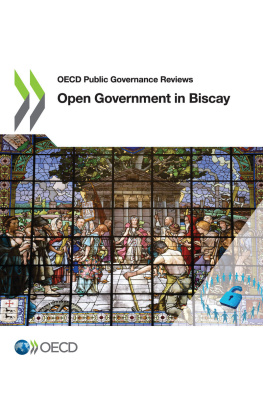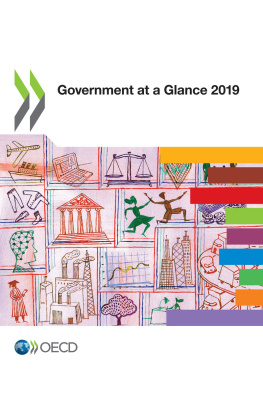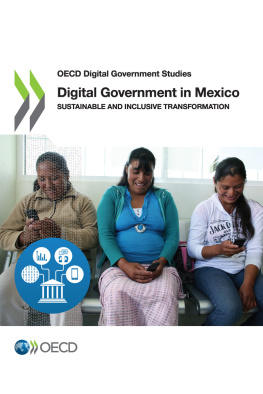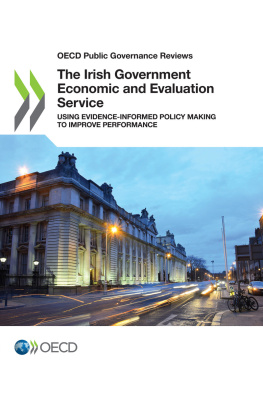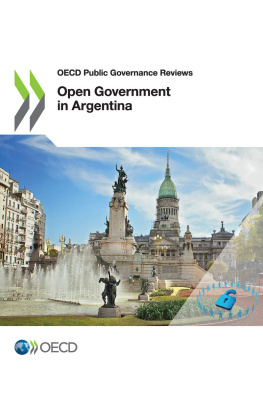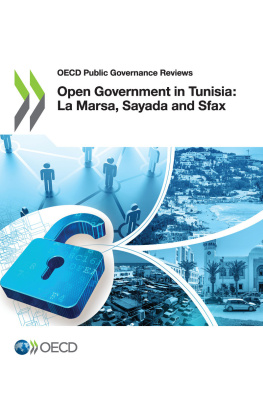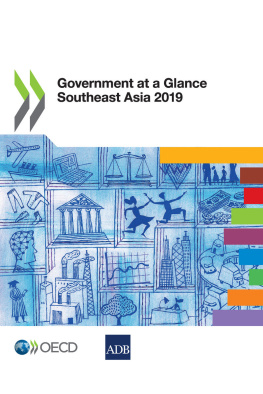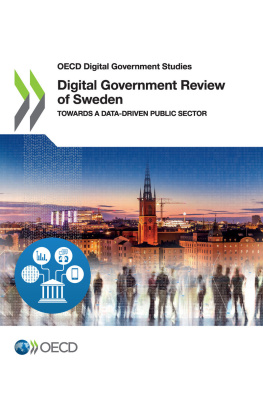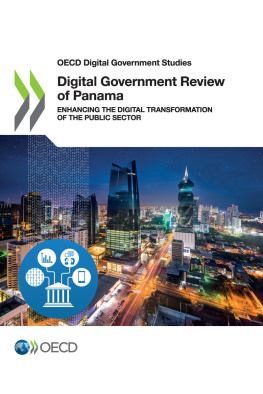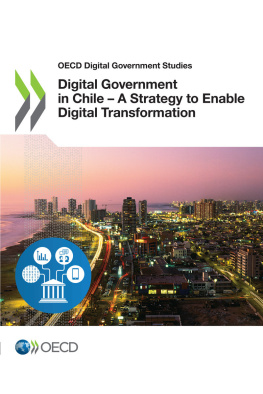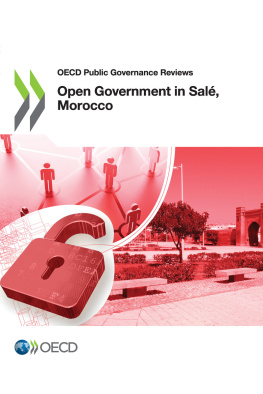OECD - Open Government in Biscay
Here you can read online OECD - Open Government in Biscay full text of the book (entire story) in english for free. Download pdf and epub, get meaning, cover and reviews about this ebook. year: 2019, publisher: OECD Publishing, genre: Politics. Description of the work, (preface) as well as reviews are available. Best literature library LitArk.com created for fans of good reading and offers a wide selection of genres:
Romance novel
Science fiction
Adventure
Detective
Science
History
Home and family
Prose
Art
Politics
Computer
Non-fiction
Religion
Business
Children
Humor
Choose a favorite category and find really read worthwhile books. Enjoy immersion in the world of imagination, feel the emotions of the characters or learn something new for yourself, make an fascinating discovery.
Open Government in Biscay: summary, description and annotation
We offer to read an annotation, description, summary or preface (depends on what the author of the book "Open Government in Biscay" wrote himself). If you haven't found the necessary information about the book — write in the comments, we will try to find it.
OECD: author's other books
Who wrote Open Government in Biscay? Find out the surname, the name of the author of the book and a list of all author's works by series.
Open Government in Biscay — read online for free the complete book (whole text) full work
Below is the text of the book, divided by pages. System saving the place of the last page read, allows you to conveniently read the book "Open Government in Biscay" online for free, without having to search again every time where you left off. Put a bookmark, and you can go to the page where you finished reading at any time.
Font size:
Interval:
Bookmark:
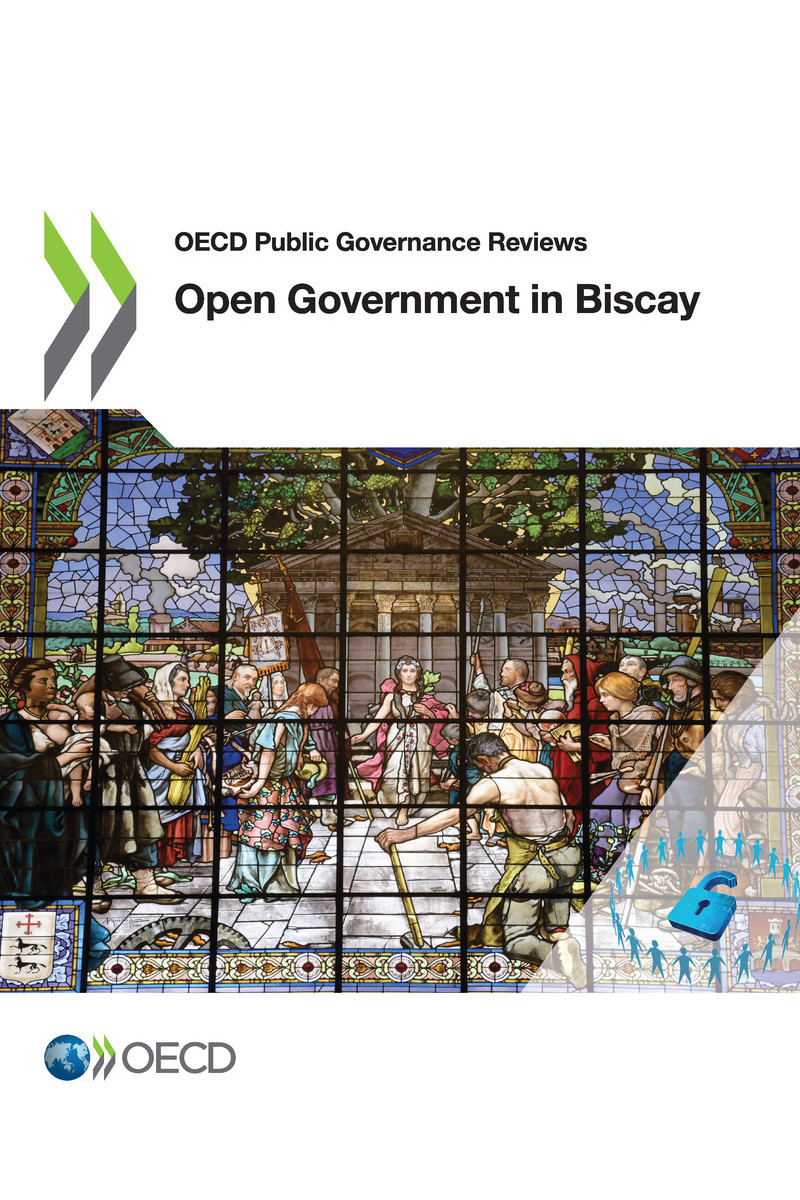
OECD (2019), Open Government in Biscay , OECD Public Governance Reviews, OECD Publishing, Paris, https://doi.org/10.1787/e4e1a40c-en .
Local governments are at the forefront of open government reforms. Their smaller size allows for greater proximity to citizens, making it easier for them to meet demands for transparency, accountability and responsiveness. It also allows them to implement more targeted and innovative public policies and to promote the principles of open government.
The government of the Province of Biscay has been implementing initiatives linked to the principles of open government for several years. It also has a long tradition of stakeholder participation, especially in the co-production of social services. Building on this, the current government of Biscay, elected in 2015, identified transparency, participation and closeness to citizens as guiding principles of its programme. As part of its open government agenda, in 2017, Biscay published an Open Government Action Plan that consolidates and builds upon previous participation and transparency initiatives, and includes a roadmap for achieving specific commitments. Biscay has asked the OECD for a thorough assessment of its open government agenda.
The analysis in this Review is based on the ten provisions of the 2017 OECD Recommendation of the Council on Open Government. It provides an in-depth assessment of Biscays institutional, legal and policy frameworks for implementing open government initiatives, with a particular focus on the creation of a sound monitoring and evaluation system. The findings indicate that Biscay has demonstrated high-level political commitment and leadership around open government, which will help anchor it within the public administration. The government has also carried out important initiatives in the areas of transparency and stakeholder participation. However, further efforts are needed to develop a holistic open government strategy and to institutionalise the open government agenda to ensure their successful and sustainable long-term implementation. To that end, the Review includes recommendations for the Province of Biscay on how to foster a public governance culture that empowers all stakeholders to play an active role throughout the entire policy cycle.
The OECD Secretariat wishes to express its gratitude to all those who made this Review possible, starting with the government of Biscay, which has been fully engaged and facilitated meetings with all relevant stakeholders. In particular, to Unai Rementeria, President of the Province, whose full engagement and leadership was crucial to the process. Special thanks also go to Ibone Bengoetxea, Deputy of the Department of Public Administration and Institutional Relations, to Ibon Oate, General Director of the Strategic Planning Office and Head of the Cabinet of Modernisation, Good Governance and Transparency, to Igor Camao, Chief of Staff of the President of the Province, as well as to the teams of the Cabinet of Modernisation, Good Governance and Transparency and of the Observatory of Biscay, who worked closely with the OECD team throughout the Review. Special thanks also go to Leyre Vitorica, General Director of Good Governance and Transparency and her predecessor Nerea Martiartu, as well as to Mara Presa, Advisor at the Department of Public Administration and Institutional Relations, to Maitane Leizaola, General Director of the Observatory of Biscay and to Jonatan Moreno, Advisor at the Observatory of Biscay for their continuous support.
The OECD team also expresses its appreciation to all the stakeholders from the different Departments of the Provincial Council of Biscay, BiscayTIK, Lantik and municipalities of the Province, as well as to members of the private sector, civil society organisations and academia interviewed during the fact-finding mission for their openness, insights and fruitful discussions. The team would also like to thank all the participants of the capacity-building workshops carried out on 3 December 2018.
The OECD would also like to extend its gratitude to the following public officials from Finland and the City of Buenos Aires, Argentina who acted as peer reviewers by sharing valuable knowledge and experience:
Katju Holkeri, Financial Counsellor, Public Governance Department, Ministry of Finance, Finland.
Niklas Wilhelmsson, Advisor, Unit for Democracy, Ministry of Justice, Finland.
Juan Martn Vila, General Director of Institutional Quality and Open Government, Government of the City of Buenos Aires.
Maricel Lonati, Manager of Institutional Articulation, General Directorate of Institutional Quality and Open Government, Government of the City of Buenos Aires.
The Open Government Review of Biscay was carried out under the leadership of Marcos Bonturi, Director of the Public Governance Directorate. The Review is part of the series of Open Government Reviews developed by the Governance Reviews and Partnerships Division (GRP), under the responsibility of Martin Forst. The Review was drafted under the strategic direction of Alessandro Bellantoni, Deputy Head of Division and coordinator of the OECD Open Government Unit, who provided extensive comments on all chapters and harmonised the narrative. The Review process was co-ordinated by Emma Cantera with the support of Carla Musi, both also drafted chapters 1, 2, 3 and 5. Chapter 4 was drafted by Eva Beuselinck, Diego Milln and Ivan Stola. Julie Harris provided editorial support. Ciara Muller and Roxana Glavanov provided communications support, quality control and prepared the manuscript for publication. Caroline Semery and Lauren Thwaites provided administrative support.
Font size:
Interval:
Bookmark:
Similar books «Open Government in Biscay»
Look at similar books to Open Government in Biscay. We have selected literature similar in name and meaning in the hope of providing readers with more options to find new, interesting, not yet read works.
Discussion, reviews of the book Open Government in Biscay and just readers' own opinions. Leave your comments, write what you think about the work, its meaning or the main characters. Specify what exactly you liked and what you didn't like, and why you think so.

